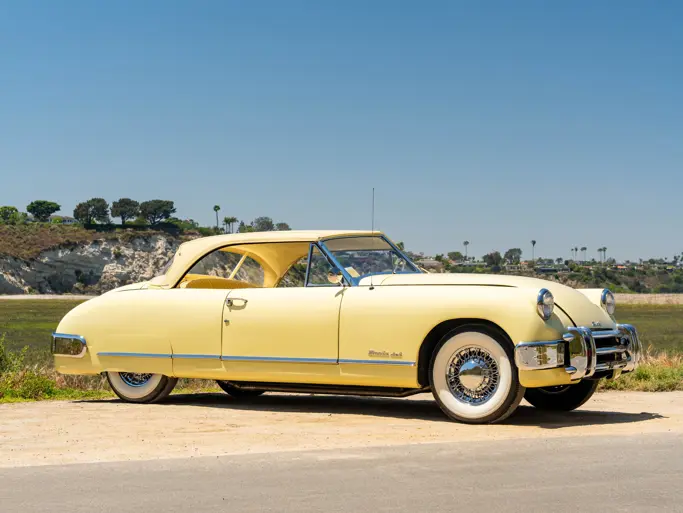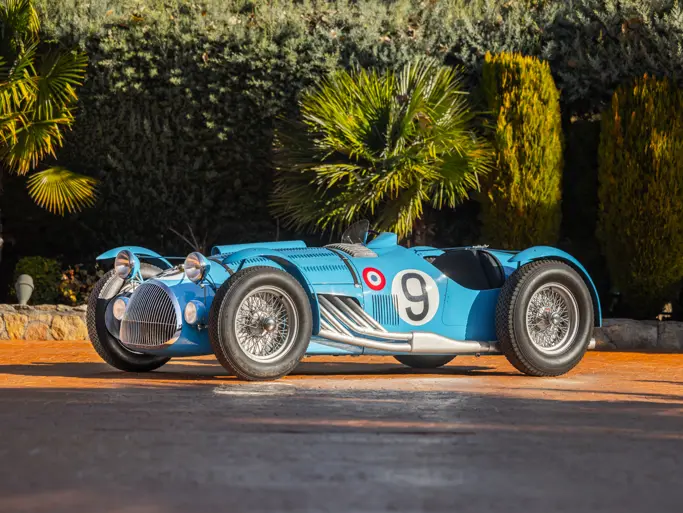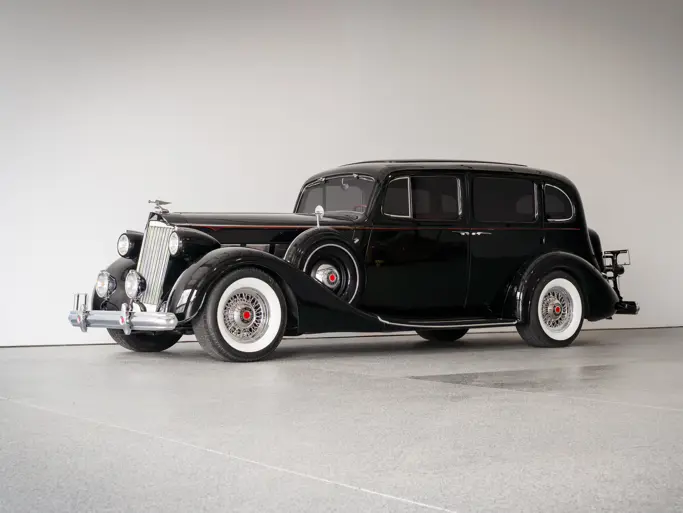Please Note: Information regarding these museum display vehicles was provided by the National Military History Center and has not been independently verified by Auctions America by RM ("AA"). As such, AA does not verify, warrant or guarantee any of this information. Prior inspection and research by the buyer is highly encouraged and recommended.
ATTENTION: Buyers are responsible for securing transportation and moving/loading of lots. Lot may be left on display indefinitely in the museum free of charge with a signed loan agreement form. Lots are sold as is, where is.
Please note this is being sold on "Bill of Sale" only.
Manufacturer: Harley-Davidson Motor Co., Milwaukee, Wisconsin
Production Year: 1942
Engine: Harley-Davidson 73.79-cid, V-twin, side-valve, 33-hp, air-cooled, two-cylinder, gasoline
Transmission: Three-speed hand-change gearbox
Brakes: Mechanical
Length: 95-1/2-inches
Width: 69-inches
Height: 59-inches (with windshield)
Weight: 850-pounds
Armor: None
Armament: NONE on this example-(Typical) one Thompson .45 caliber M1928A1 or M1A1 submachine gun in a front fork-mounted holster
Maximum Road Speed: 55-mph (maximum recommended)
Markings: US 1st Army, 101st MP Battalion, A Co., 4th Vehicle
The Harley-Davidson UA was based on the Harley Model U design of the 1930s. “A” was added to the model designation in 1939 which simply stood for “Army.” The quantity of 670 units were produced for the US Army from 1939 to 1941. A further 1,597 units were provided to the Commonwealth of South Africa in 1942. Limited production continued throughout the war. The US Marine Corps used some Harley UAs as well. The UA was basically the same as the Harley civilian model U, other than some military fittings. Typical military fittings included a front fork holster for a Thompson submachine gun, or occasionally replaced with a carbine or rifle holster (NONE on this example). A wind screen with a transparent upper section was added along with a similar unit for the sidecar. Front and rear crashbars were generally added as well. The engine was modified to produce a lower compression ratio, and a larger, more restrictive air filter was also added. In addition, the gearing was lowered to reduce wear on the engine. The US military never showed as much interest in motorcycle with sidecar combinations as did the European armies, particularly Germany. The US Navy used a small number of similar Harley 61-cid motorcycle with sidecar models.

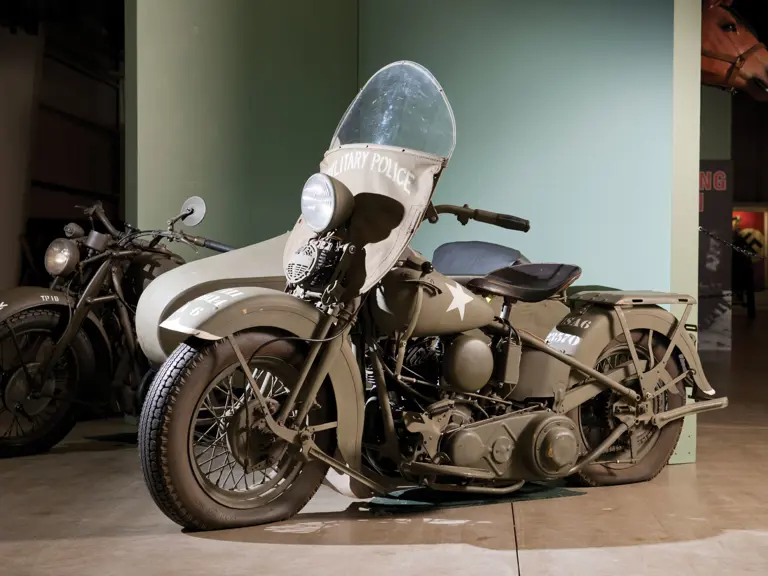
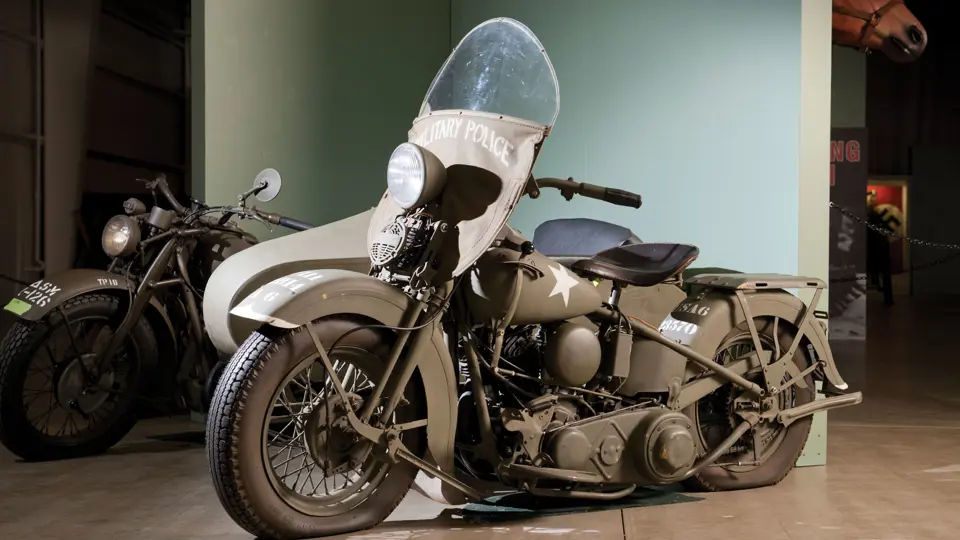
 | Auburn, Indiana
| Auburn, Indiana
